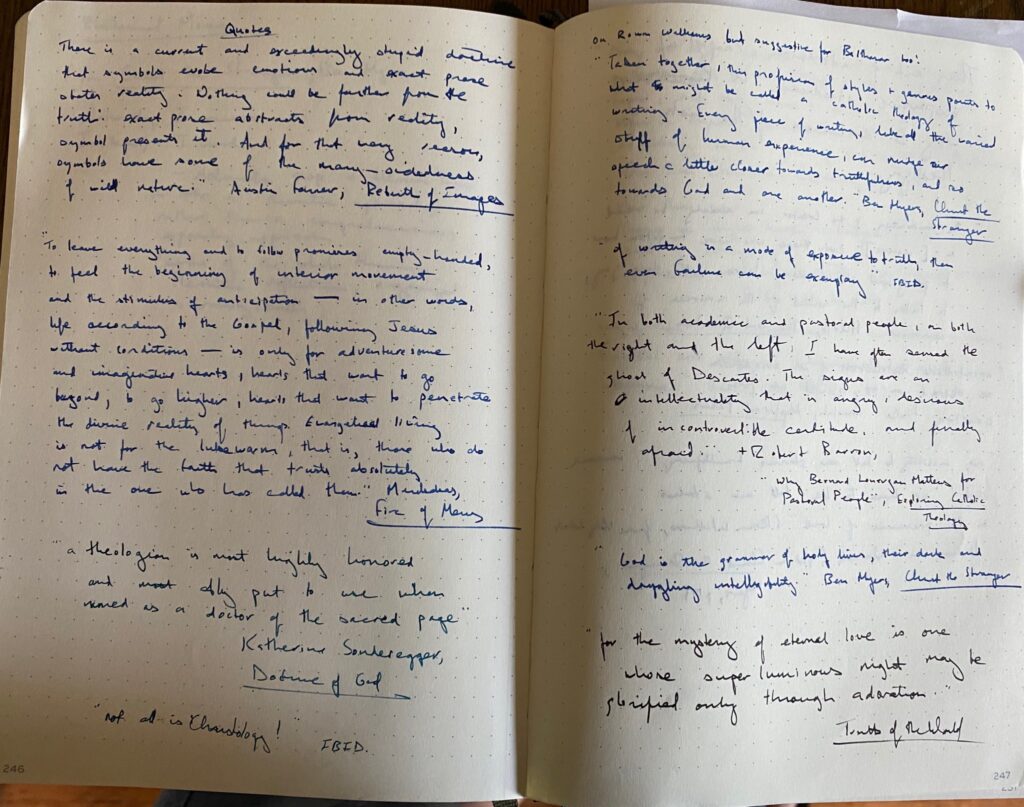I recently finished reading (really listening to) Katherine Rundell’s biography of John Donne, Super-Infinite. Having recently heard Rundell interviewed on Tyler Cowan’s podcast, I wish she would have narrated the audio book. The exuberance of her personality would have nicely matched her exuberant portrayal of Donne and his world.
I am working on idea for an essay about Donne and anthropology, but for now I wanted to note what Rundell has to say about Donne as keeper of a commonplace book. Donne was known as one of the great commonplacers of his age, and Rundell notes “that the first recorded use of the work ‘commonplacer’ in the Oxford English Dictionary is Donne’s.”
Here is how Rundell describes the commonplace book:
The commonplace book allowed readers to approach the world as a limitless resource; a kind of ever-ongoing harvesting. It was Erasmus, the Dutch scholar known as ‘the prince of the humanists’ who codified the practice. The compiler, he wrote, should ‘make himself as full a list of place-headings as possible’ to put at the top of each page: for instance, beauty, friendship, decorum, faith, hope, the vices and virtues. It was both a form of scholarship, and, too, a way of reminding yourself of what, as you moved through the world, you were to look out for: a list of priorities, of sparks and spurs and personal obsessions. Donne’s book must surely have had: angels, women, faith, stars, jealousy, gold, desire, dread, death.”
I’ve posted in the past about my own experience of keeping a commonplace book. What strikes me as completely true from her description is that knowing I had this book and a set of preoccupations helped me look at the world in a certain way. What I read, what I listened, what I watched, all had the potential to speak to me. The practice has always helped me foster some level of expectation and receptivity.
When I think back on the practice of commonplacing, I am sometimes even able to remember what I wrote down, even years ago, but more often than not the real benefit is reading back through what I have collected over the years. A few months ago I flipped through a set of notebooks from around ten years ago. There were all sorts of quotes about beauty, about perception, about epiphany, about the nature of divine revelation. Those quotes, I realize now, and the reading they represented were the seed bed of what became my doctoral work on theological aesthetics.
I used a horticultural image to describe commonplacing, but T.S. Eliot, speaking of Donne, uses more alchemical language, writing, “When a poet’s mind is perfectly equipped for its work, it is constantly amalgamating disparate experience.”

